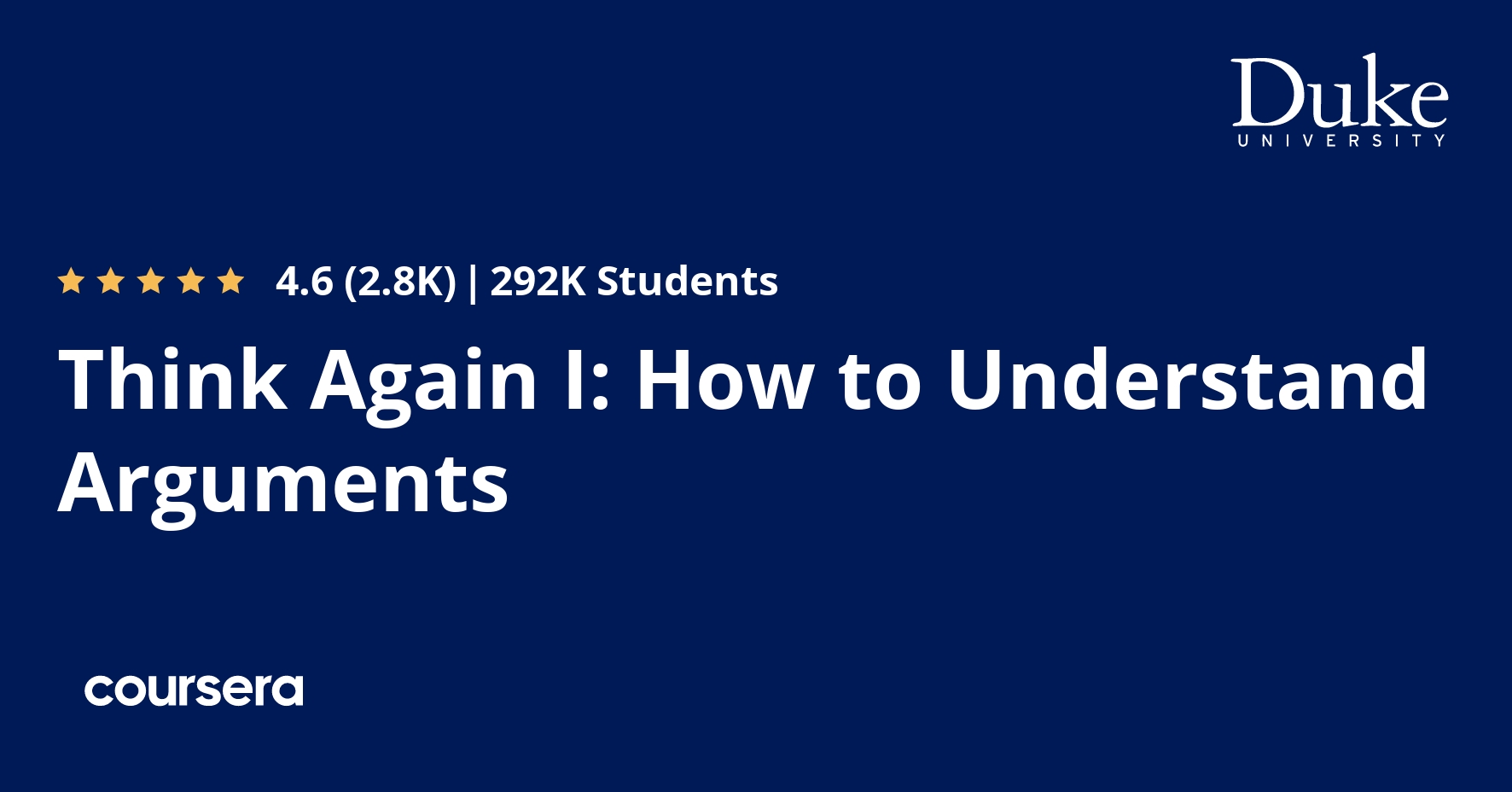Description
In this course, you will learn what an argument is. The definition of argument will enable you to identify when speakers are giving arguments and when they are not. Next, you will learn how to break an argument into its essential parts, how to put them in order to reveal their connections, and how to fill in gaps in an argument by adding suppressed premises. By the end of this course, you will be better able to understand and appreciate arguments that you and other people present.
Suggested Readings:
Students who want more detailed explanations or additional exercises or who want to explore these topics in more depth should consult Understanding Arguments: An Introduction to Informal Logic, Ninth Edition, Concise, Chapters 1-5, by Walter Sinnott-Armstrong and Robert Fogelin.
Course Format:
Each week will be divided into multiple video segments that can be viewed separately or in groups. There will be short ungraded quizzes after each segment (to check comprehension) and a longer graded quiz at the end of the course.





